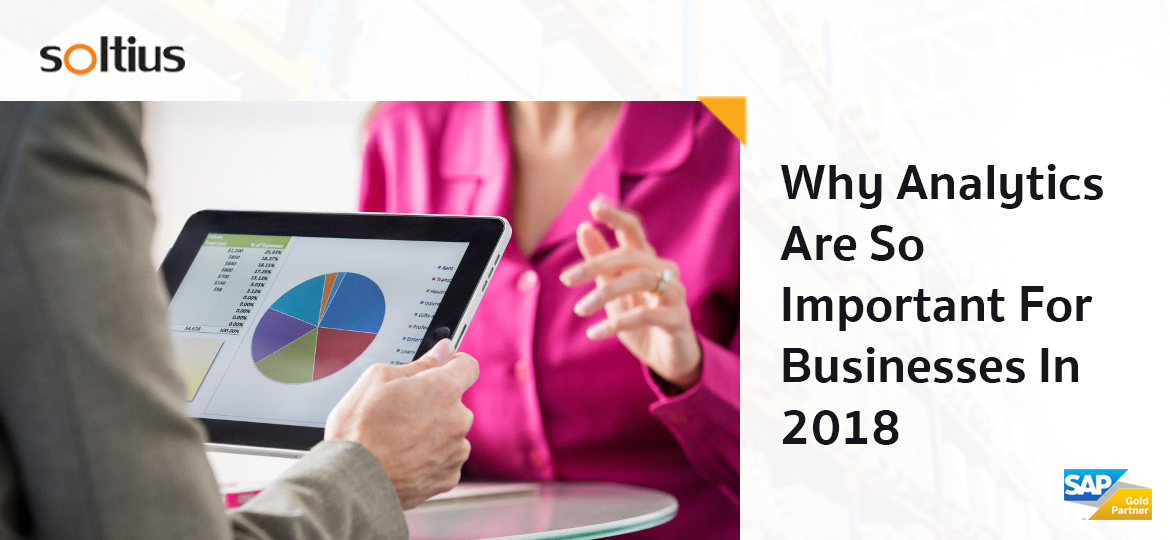Why Analytics Are So Important For Businesses In 2018

Last year, most of the world swooned over new technological evolutions such as artificial intelligence, machine learning, the Internet of Things, and automation. Even though these technologies are proving to be catalysts for growth, many small business leaders have decided to concentrate most of their investments on data analytics.
In fact, according to IDC’s infobrief “The Next Steps in Digital Transformation,” 47% of surveyed entrepreneurial companies adopted business analytics or business intelligence software for data analytics in 2017. While IDC’s finding is encouraging, most small businesses also recognized in 2017 that they are only scratching the surface of what they need from analytics to compete effectively.
Ray Boggs, vice president of small and medium business research at IDC, recently commented in an IDC Analyst Connection that this reality can be attributed to the misunderstood value of analytics. “The benefits of advanced business intelligence can come not just from better [or] faster answers to current business questions, but from an appreciation of what the most important questions are that aren’t yet being asked,” he shared. “As small and midsize firms grow, there is a risk of extending business practices and processes without a critical review of what is essential.”
But this news is so 2017. It’s time to kick into high gear a brand-new mentality around analytics for 2018.
Why embracing predictability reveals the full potential of data analytics
Small business leaders have often felt left behind by the growing acceptance of analytics, fearing that their workforce, customer base, or operations were too small to justify the cost. Although this view is shortsighted, it’s entirely understandable. Budgets are usually so tight that it’s difficult to take money from one department to pay for a new solution when ROI is not 100% predictable.
While most things in life are anything but predictable, the cost of implementing and maintaining technology, especially business intelligence analytics in the cloud, is. Here are three reasons why.
- Businesses stay in line with leading-edge capabilities without significant capital and head count. Each month, a monthly subscription is paid to access the exact analytics capabilities they need now – with the flexibility to introduce or remove organizations, users, or capabilities later as the company evolves.
- Decision-makers can discover, predict, visualize, collaborate, model, and manage data – all in one place and with a common logic. With this infrastructure, businesses can take advantage of the latest digital innovations in a seamless, familiar user experience. This strategy not only reduces the cost of maintaining analytics, but also increases ROI.
- Guaranteed storage in a data center can be protected against a range of ransomware and viruses. As analytics become a natural part of running all aspects of the business, decision-makers can take advantage of a growing, yet secure, collection of data to adopt predictive analytics and cross-functional forecasting.
Analytics and the cloud: A stunning opportunity for growth
For all of the reasons I stated, analytics have never been more accessible. Subscription pricing is more in line with the various stages of a growing business. Security concerns are subsiding as data centers comply with stringent government and industry regulations and certifications. And more importantly, the capabilities needed to sharpen decision-making and compete in a highly unpredictable marketplace are only improving as emerging technology.
Whether you know it or not, the next wave of analytics innovation will accelerate and automate some aspects of decision making through machine learning, artificial intelligence, and blockchain. Such capabilities can give small companies a groundbreaking opportunity to compete like a large enterprise with the speed and agility of a startup – but only if business intelligence is managed with the flexibility of the cloud.
Read the IDC Analyst Connection “Analytics for SMBs: Sharpen Operations, Capitalize on Business Opportunities,” sponsored by SAP, to find out how businesses worldwide can benefit from business analytics. And don’t forget to check previous installments to our blog series “Analytics Connection for SMBs” to explore the possibilities for your company.
Article published by Mario Farag. It originally appeared on Insights Matter - Feed | Growth Matters Network
Other News


